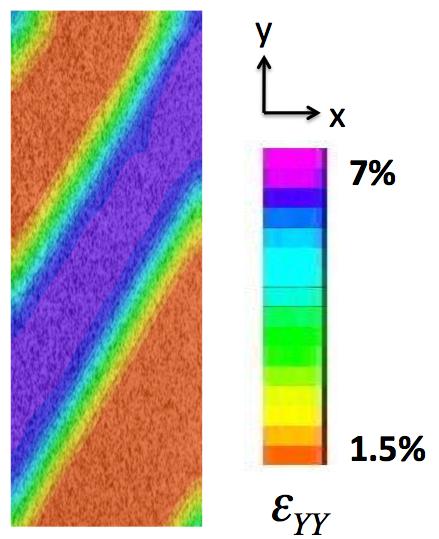 The primary years of a researcher’s career are vital to his or her future success. With an understanding of the significance of these beginning stages, the Department of Energy (DOE) announced in January of this year the Early Career Research Program.
The primary years of a researcher’s career are vital to his or her future success. With an understanding of the significance of these beginning stages, the Department of Energy (DOE) announced in January of this year the Early Career Research Program.
“We [junior faculty] are at a critical stage in our careers where we must carefully build our laboratories and research groups to lay a strong foundation for long-term quality research,” said ME Assistant Professor Sam Daly, a recipient of the Early Career Research Award. “By providing funding for necessities such as doctoral students, equipment, facility fees, and travel, programs like the DOE Early Career Award allow junior faculty members to focus on the importance of building a strong research group and investigating fundamental scientific phenomena.”
Daly is one of 69 research scientists from across the nation who will receive five-year grants under the Obama administration’s American Recovery and Reinvestment Act. The grant will support her research, “Deformation and Failure Mechanisms of Shape Memory Alloys,” which seeks to understand the fundamental mechanics driving the deformation and failure of shape memory alloys (SMAs), a unique group of metallic alloys.

Daly’s research group plans to use the award to conduct experiments on phase transformation in SMAs across multiple length scales, and to apply these results to theoretical and computational modeling. “By better understanding how SMAs undergo deformation and failure, and combining this understanding with current constitutive models and computational tools, we aim to provide insights into tailoring these materials and predicting their behavior in applications such as biomedical and MEMS devices,” said Daly.
The Office of Basic Energy Sciences chose to fund Daly’s research because of the potential impact it will have on scientific research well beyond the field of SMAs. “Although we focus on phase transformation in Nickel-Titanium as a representative SMA, the lessons we can learn from these experiments are representative of a wide class of materials,” explained Daly. “In addition, the new experimental methodologies that we will develop and use in this research are applicable to a wide range of future investigations into the mechanics of materials.”
Awardees were selected from a pool of 1,750 applicants from universities and national laboratories nationwide. Under the program, university-based researchers like Daly will receive at least $150,000 per year to cover summer salary and research expenses.
Christiane Jablonowski, an assistant professor in the department of atmospheric, oceanic and space sciences, also received an Early Career Research Award.